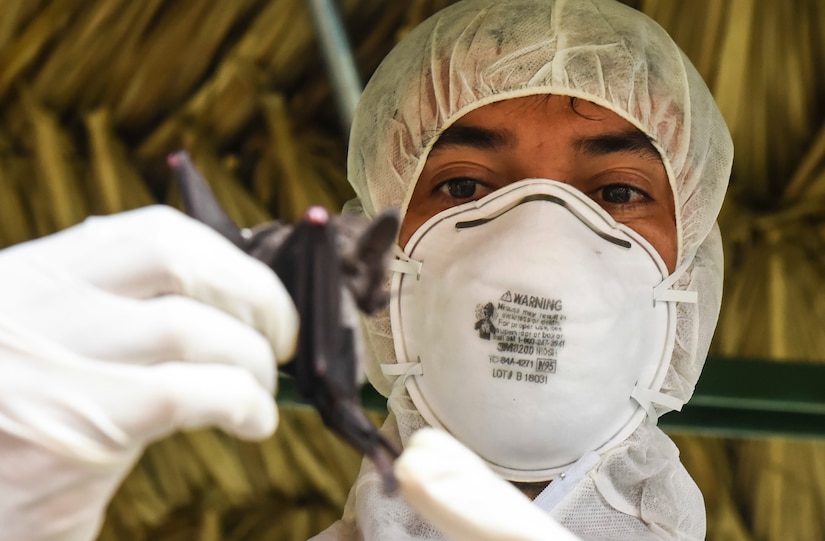By Air Force Senior Airman Dustin Mullen, 325th Fighter Wing
PANAMA CITY, Panama -- A team of U.S. military doctors,
public health specialists and members of other career fields participated in
infectious diseases training here, June 4-8.
The training took place during Exercise New Horizons 2018,
which is a joint training exercise where U.S. military members conduct training
in civil engineer, medical and support services while benefiting the local
community. The training consisted of briefings, lectures and a day of field
study.
In collaboration with the Gorgas Institute, University of
Panama and the Panamanian Ministry of Health, the team studied various
diseases, the vectors that carry them and the ways Panama is combating the
diseases.
“Infectious diseases are a huge issue for U.S. Southern
Command when it thinks about force health protection in this region,” said Air
Force Lt. Col. Brian Neese, 346th Expeditionary Medical Operations Squadron
commander. “We wanted to look at infectious diseases from the many different
disciplines that come into it. Clinical medicine, preventative medicine, public
health, laboratory specialties, expeditionary capabilities with aerospace
medicine and collaboration with Global Health Specialists from the Navy. We
brought all that together in this event.”
Lectures From Disease Experts
Throughout the week, the U.S. military doctors participated
in lectures from Panamanian infectious disease experts and field studies of
possible virus-carrying wildlife and insects.
Such training opportunities enable military doctors to
expand their cross-cultural and global health knowledge.
“I have been really struck by the strategic importance of
Panama in the United States’ biosecurity,” said Air Force Lt. Col. (Dr.)
Heather Yun, 346 EMDOS infectious disease physician. “There are a lot of
biological threats here in Central America or that try to come here from South
America through human migration.”
Due to the geographic location of Panama, the importance the
country places on controlling diseases greatly benefits the Unites States, as
well as other Central American countries.
“Panamanian efforts to halt infectious disease transmission
functions as a barrier for transmission of viruses such as yellow fever,” Yun
said, noting Panama’s disease control methods. “If we didn’t have that kind of
surveillance here, then the U.S. would be at increased risk of encroachment
from a lot of vector-borne diseases.”
The agency leading the disease research efforts is the
Gorgas Institute. Founded in 1929, this world-renowned organization’s mission
is to promote public health and contribute to research and teaching for the
benefit of the population.
“The first thing that strikes me about Panamanians is that
they are extremely organized, particularly the Gorgas Institute, which is a
jewel,” said Air Force Lt. Col Mark Breidenbaugh, 346 EMDOS entomologist. “They
have quality people and are funded at a level where they can do the work they
need to do. They are doing cutting-edge molecular biology so they can recognize
genetic material in their samples and therefore recognize exactly what kind of
virus they are working with.”
Working With Panamanian Doctors
Getting the opportunity to work with Panamanian doctors can
better equip U.S. doctors to recognize and react to various tropical diseases.
“Anytime you go overseas to a different culture, different
language and a different way of doing things, it only increases readiness,” Yun
said. “Because of the assets they have here, there is a lot of direct
translatability between what we do in the U.S. We are always looking for ways
to collaborate on research projects.”
Beyond just tropical diseases, creating bonds between the
different specialties and organizations can aid in future research.
“I am thankful to come down here and do this because I believe
in the global health interactions we are doing,” Breidenbaugh said. “In one
sense, we are all diplomats. We are representing our country on an individual
basis. I have already had requests from Panamanians to put them in touch with
certain researchers I know.”

No comments:
Post a Comment